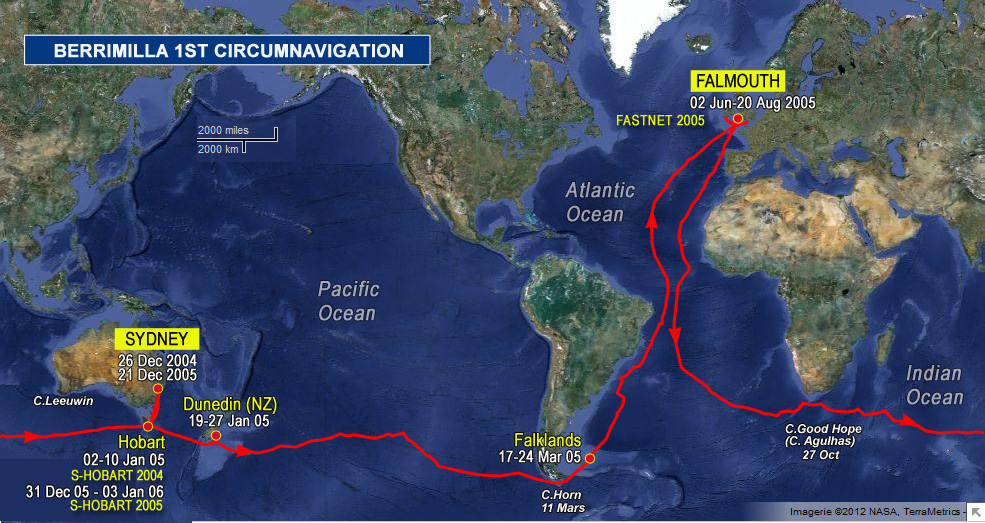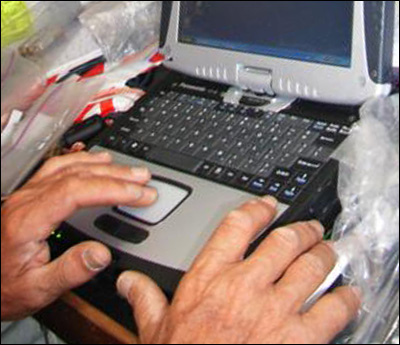1200hrs 27 Sep 2005 UTC 15’51”S 026’55”W Ref 389
I’ve been thinking about young Henry Knight and the thousands of people like him who died out here in truly appalling conditions and have no marker or memorial – some, like Henry, properly buried at sea with a log entry and a tiny slip of paper to record the position, but most just abandoned like a bucket of galley slops. Think for instance, of the million or so Africans who were just tossed overboard from the slave ships when they died, unnamed and unwanted. It must have been quite common to sail past floating bodies and, in the very worst calms, they would have floated with the ship for days perhaps. This is my tiny attempt to pay my respects to them all and to acknowledge their existence. Perhaps their ghosts will find a little comfort in our passing and remembering them. Perhaps not.
My father, who flew aircraft off carriers and survived the second world war and would never talk about it, used to sit quietly and play Kathleen Ferrier singing ‘Blow the Wind Southerly’ and I could see that it affected him emotionally – not just the sheer beauty of her unaccompanied voice but also the words. I think I now have some idea about why. As an illustration, Hilary did some research for us into Pedro Alvarez Chabral and found that he was sent by King Manuel 1 to follow Vasco da Gama’s route to India. Sailing with him were four tiny caravels commanded by Bartolomeu Dias. All were lost. Think of the grief, courage, pain, uncertainty and loneliness in those three words – all were lost. Many of my father’s friends disappeared without trace too (and even some of mine) and Kathleen Ferrier was his way of remembering them all. I will play it for Henry and all the others when we get closer to him.
Kathleen Ferrier singing ‘Blow the Wind Southerly’ on YouTube
Yesterday I wrote about finding the way back. Every captain kept a log of a sort, partly to get him home again and partly for those who were to follow. It was more a word picture of what they saw and did – “we steered through the night towards two bright stars close together and the swells came from the east…”. The Dutch called these logs ‘rutters’ and I think the French equivalent would be ‘routiers’. I don’t think there is an exact English equivalent – routemap is the best I can do – even the dreaded travelogue, perhaps. Pedro Alvarez Chabral would have carried a copy of da Gama’s rutter. These rutters were highly prized and were seized by the national authorities whenever any captain was skilful or lucky enough to find his way home and they became part of – in today’s terms – a nation’s intellectual property. The Portugese kept them in an archive in Lisbon until it was burned down in the 1700’s and the Dutch, English and Spanish guarded them carefully as well. Nevertheless, copies were made and smuggled across borders and I have seen an amazing atlas that was presented to Henry VIII that is almost certainly the result of this covert intelligence work. There is conjecture that Cook had pirate copies of the early Portugese or Dutch rutters when he sailed through the Torres Strait for the first time.
As an afterthought, modern computer gizmos are called routers.

 The logs ramblings can be cryptic, so we have added:
The logs ramblings can be cryptic, so we have added: